5 unusual management techniques from the world’s tech titans
Elon Musk: Walk out of your meetings
Elon Musk wears a lot of hats. He’s CEO of SpaceX and Tesla, owner and CTO of X/Twitter, President of the Musk Foundation, and Founder of The Boring Company, X Corp., Neuralink, and xAI.
So how does he play a meaningful role in managing them all?
Well, time is the biggest constraint for founders, and Musk is a big proponent of spending less time in meetings.
“Walk out of a meeting or drop off a call as soon as it is obvious you aren’t adding value,” he advises.
He also believes that everyone within the company should be able to talk to anyone else — without waiting for a meeting. “You can talk to me, you can talk to anyone,” he tells employees, encouraging an open dialogue around
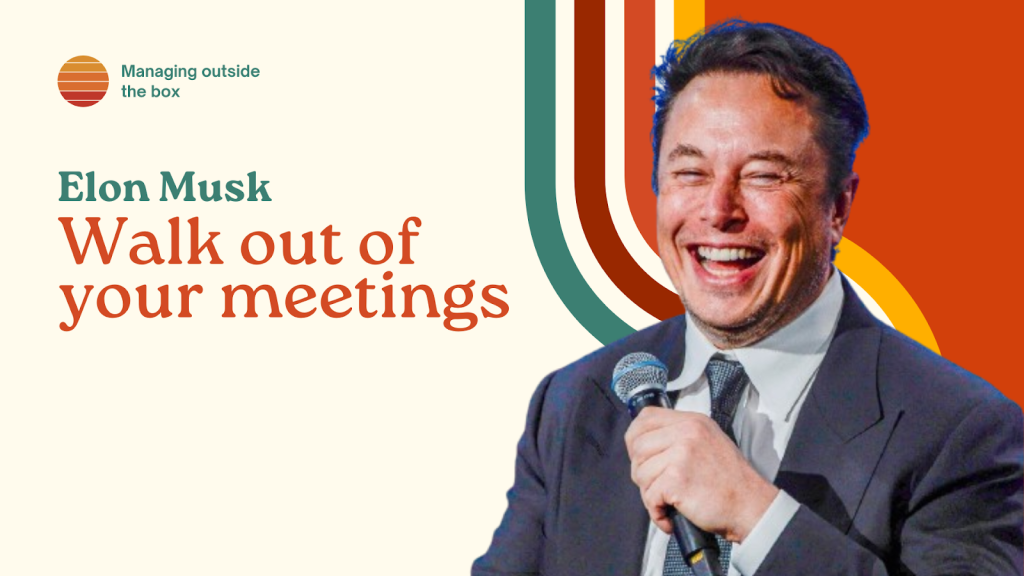
Mark Zuckerberg: Mo managers, mo problems
In the 20 years since he first founded Facebook in his Harvard dorm room, Zuckerberg has loosened the reigns very little at Meta.
He believes a CEO should “make as many decisions and get involved in as many things” as possible, rather than delegating to execs — and he practices what he preaches.
A flatter corporate structure also cuts out the bloat of “managers managing managers,” he says. Lean organizational structures have been praised by countless founders and CEOs for encouraging a more dynamic, nimble environment with faster decision-making and less red tape.
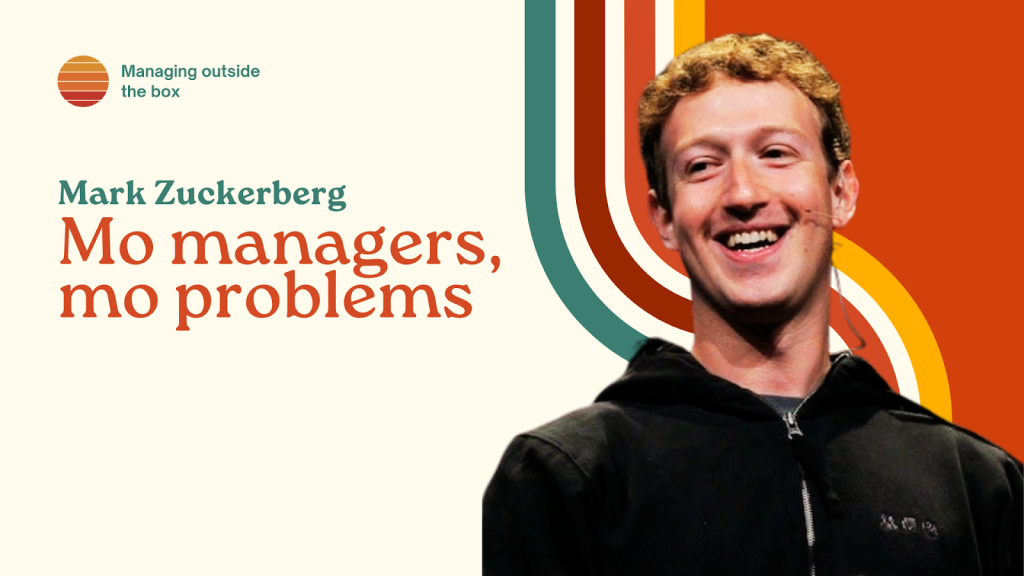
Larry Page & Sergey Brin: 20% time
Google started with an argument about urban planning. Seriously, that’s how Larry Page and Sergey Brin met, during a college tour at Stanford in 1995. They were very different, each finding the other “obnoxious”, but maybe that’s what led them to see such value in individuality and personal interests.
At Google, the cofounders implemented a policy where employees were encouraged to spend 20% of their time on their own projects, something they believed would “most benefit Google.”
They even credit this policy with the creation of AdSense and Google News.
(Another interesting trait of Page and Brin? They only take a $1 salary each from Alphabet — though you might not want to try that until you’re as big as Google!)
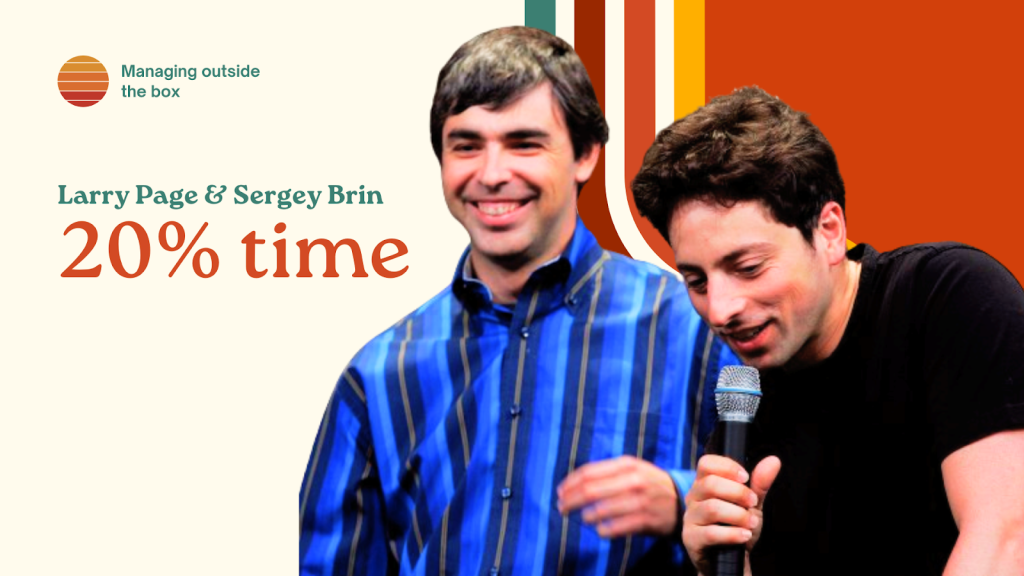
Tim Cook: Turn up the heat
Apple’s Tim Cook is not the easiest person to work for. And it’s not just a matter of impressing him once; expect to be proving yourself to him, potentially forever.
“He’ll ask you ten questions. If you answer them right, he’ll ask you ten more,” one employee described, when asked about Cook’s tendency to make sure everyone at Apple knows their stuff. “If you do this for a year, he’ll start asking you nine questions.”
“[But] get one wrong, and he’ll ask you 20 and then 30.”

Jeff Bezos: No PowerPoints allowed
Jeff Bezos might have the most unique leadership style of all. He’s a “lateral thinker” who spends the first part each day “wandering” and “puttering”. He thinks in terms of one- and two-way door decisions (ie those that can be reversed and those that can’t). And he believes that anything that isn’t “Day 1 thinking” is “death”.
But one of the things he’s most particular about is his meetings. He’s outright banned PowerPoints, instead instructing employees to share ideas through six-page memos, called “narratives”. The first part of any meeting is spent reading the memo together, followed by a Q&A.
“A good memo forces better thought and better understanding,” he says, leading to a more “elevated discussion.”
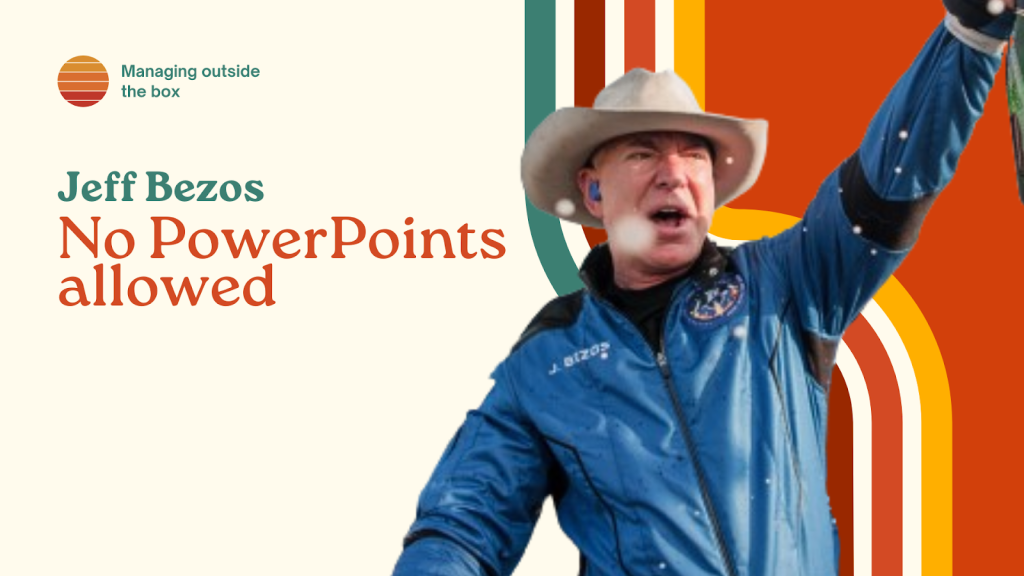





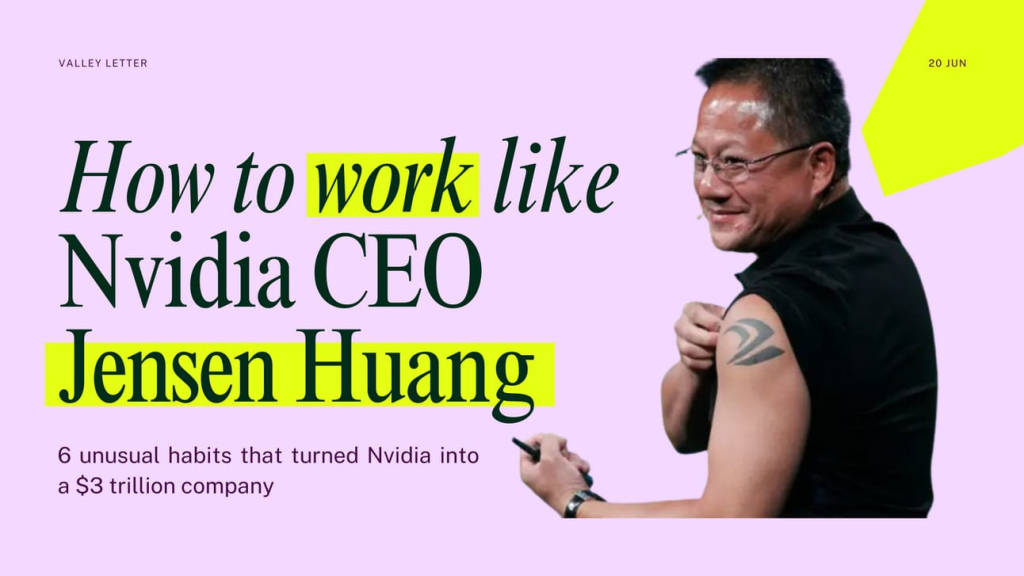
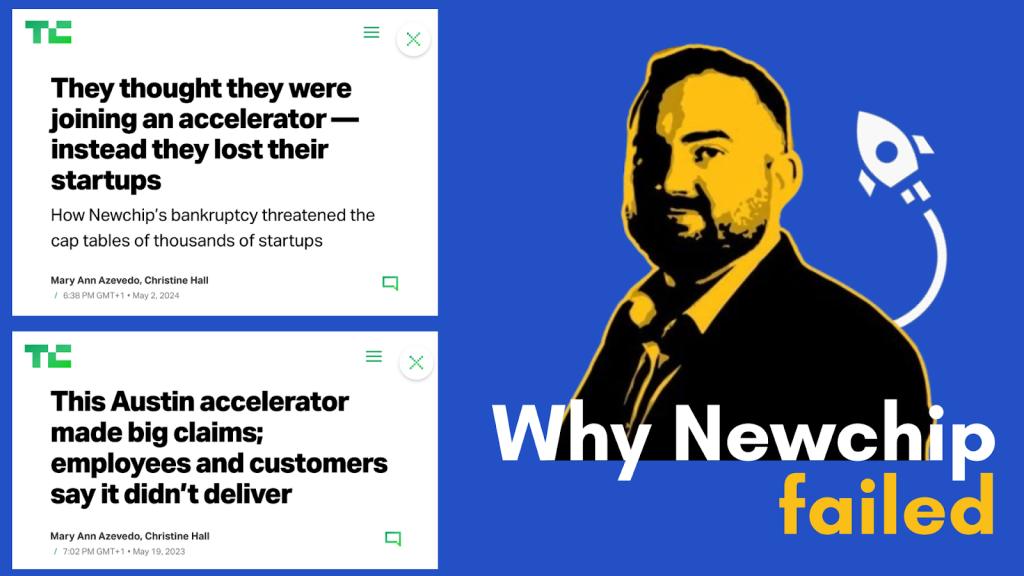

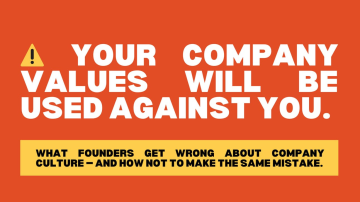
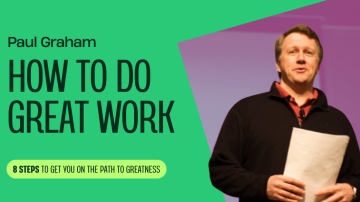
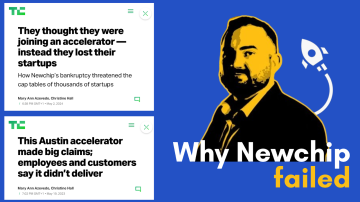
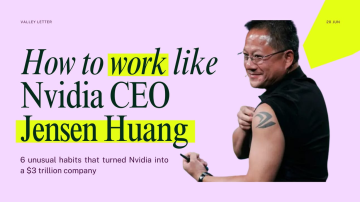

Fun88 down again? linkvaofun88 promises to have the working links. Going to give it a shot. Hope it saves me some frustration! Check it out: linkvaofun88
Hey, I’ve been messing around with 5588bet1 recently, and it’s alright! There’s a bunch of games on here, and the site’s easy to use. Check ’em out at 5588bet1.
Great breakdown on e-sports betting strategies – it’s refreshing to see real data used. For those looking to mix gaming with smart tech, checking out platforms like Jili77 com can be a game-changer with their AI-driven insights.
CWIBLA is fantastic! A very organised place to find helpful resources and connect with people. I would definitely recommend it! Visit using: cwibla.